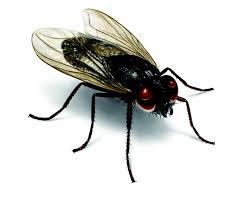fly
英 [flaɪ]
美 [flaɪ]
- vi. 飞;驾驶飞机;飘扬
- vt. 飞行;飞越;使飘扬
- n. 飞行;苍蝇;两翼昆虫
- adj. 敏捷的
- n. (Fly)人名;(法)弗利;(英)弗莱
使用频率:

记忆方法
1. fly flew (音变:y -> v -> u -> w) => *flewen => flown.
中文词源
fly 飞行,昆虫
来自PIE*pleu, 流动,漂浮,词源同float, fleet. 由飘动引申词义在空中浮动,飞翔,飞行等。同时,用来指小昆虫等。
英语词源
- fly
-
fly: [OE] Historically, ‘move through the air’ is something of a secondary semantic development for fly. Its distant Indo-European ancestor, *pleu-, denoted rapid motion in general, and in particular ‘flowing’ or ‘floating’, and it produced such offspring as Greek pléo ‘sail, float’ and Sanskrit plu- ‘sail, swim’, as well as English fleet, flood, flow, fowl, plover, and pluvial.
An extension to that base, *pleuk-, gave rise to Lithuanian plaukti ‘float, sail, swim’, and to prehistoric West and North Germanic *fleugan, source of German fliegen, Dutch vliegen, Swedish flyga, and English fly, all meaning ‘move with wings’. The insect-name fly is also of considerable antiquity, going back to a prehistoric Germanic derivative *fleugōn or *fleugjōn, but the origins of the adjective fly ‘crafty, sharp’ [19] are not known.
=> fleet, flood, flow, fowl, plover, pluvial - fly (n.)
- Old English fleoge "a fly, winged insect," from Proto-Germanic *fleugon "flying insect" (cognates: Old Saxon fleiga, Old Norse fluga, Middle Dutch vlieghe, Dutch vlieg, Old High German flioga, German Fliege "fly"); literally "the flying (insect)" (compare Old English fleogende "flying"), from same source as fly (v.1).
Originally any winged insect (moths, gnats, beetles, locusts, hence butterfly, etc.) and long used by farmers and gardeners for any insect parasite. Flies figuratively for "large numbers" of anything is from 1590s. Plural flien (as in oxen, etc.) gradually normalized 13c.-15c. to -s. Fly in the ointment is from Eccles. x:1. Fly on the wall "unseen observer" first recorded 1881. No flies on _____ "no lack of activity or alertness on the part of," is attested by 1866. Meaning "fish-hook dressed to resemble an insect" is from 1580s; Fly-fishing is from 1650s. Fly-catcher "bird which eats insects on the wing" is from 1670s. The fly agaric mushroom (1788) so called because it was used as a poison for flies.
The sense of "a flight, flying" is from mid-15c. From the verb and the notion of "flapping as a wing does" comes the noun sense of "tent flap" (1810), which was extended to "strip of material sewn into a garment as a covering for buttons" or some other purpose (1844). Baseball fly ball attested by 1866. To do something on the fly is 1856, apparently from baseball.When the catcher sees several fielders running to catch a ball, he should name the one he thinks surest to take it, when the others should not strive to catch the ball on the fly, but only, in case of its being missed, take it on the bound. ["The American Boys Book of Sports and Games," New York, 1864]
- fly (v.1)
- "to soar through air; move through the air with wings," Old English fleogan "to fly, take flight, rise into the air" (class II strong verb; past tense fleag, past participle flogen), from Proto-Germanic *fleugan "to fly" (cognates: Old Saxon fliogan, Old Frisian fliaga, Middle Dutch vlieghen, Dutch vliegen, Old High German fliogan, German fliegen, Old Norse flügja), from PIE *pleuk-, extended form of *pleu- "to flow, float" (see pluvial).
Meaning "go at full speed" is from c. 1300. In reference to flags, 1650s. Transitive sense "cause to move or float in
权威例句
- 1. His inspiration to fly came even before he joined the Army.
- 他想开飞机的念头在参军之前就有了。
- 2. Then the woodcutter let his axe fly— Thwack! Everyone heard it.
- 然后那个伐木工脱手甩出了斧头。哐!每个人都听见了。
- 3. It was all pretty much done on the fly.
- 那几乎都是匆忙之中完成的。
- 4. Steve Crabb can fly the flag with distinction for Britain in Barcelona.
- 史蒂夫·克拉布在巴塞罗那可以旗帜鲜明地支持英国。
- 5. You can fly direct to Amsterdam from most British airports.
- 从英国的大多数机场都可以直飞阿姆斯特丹。
